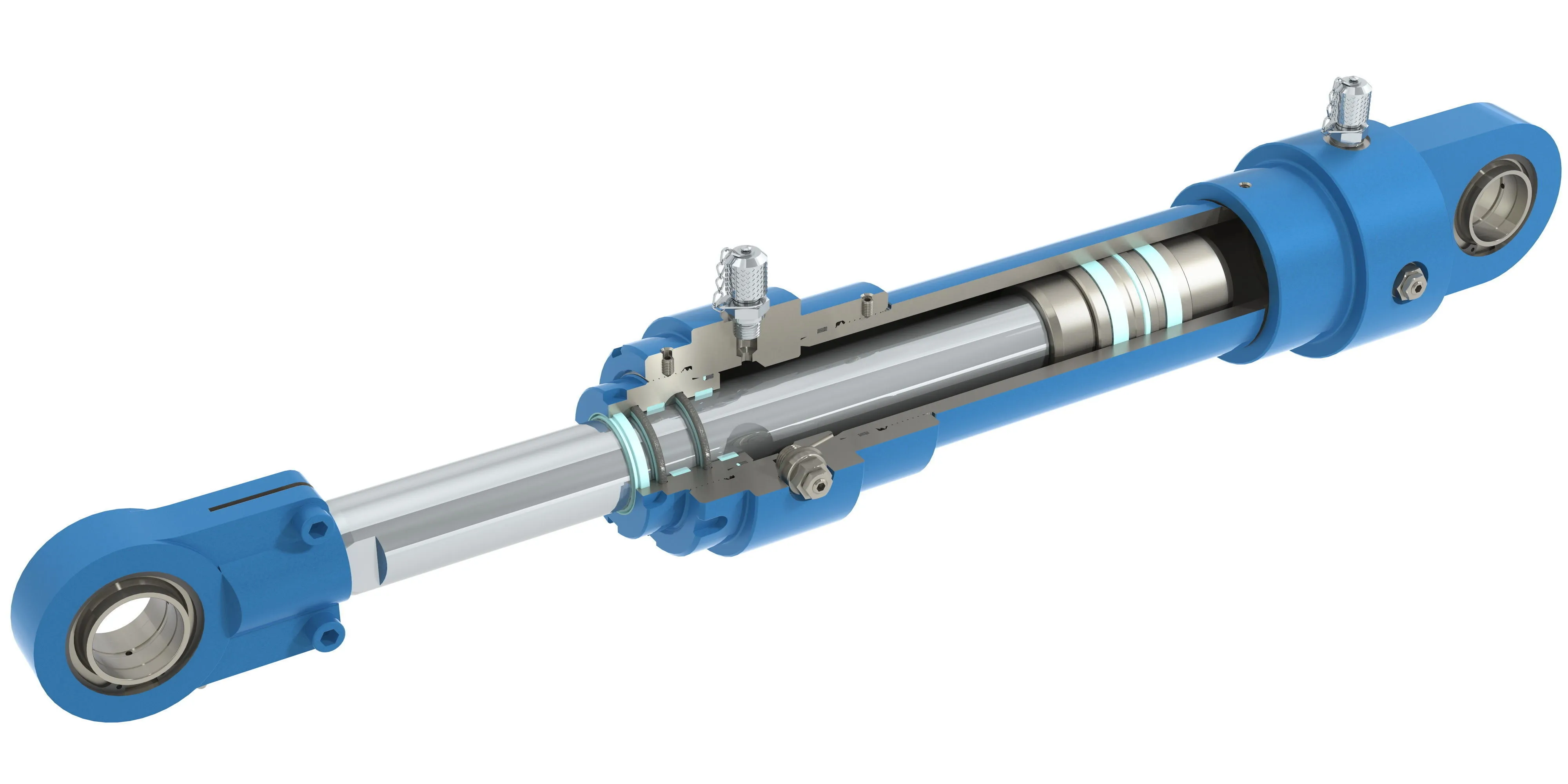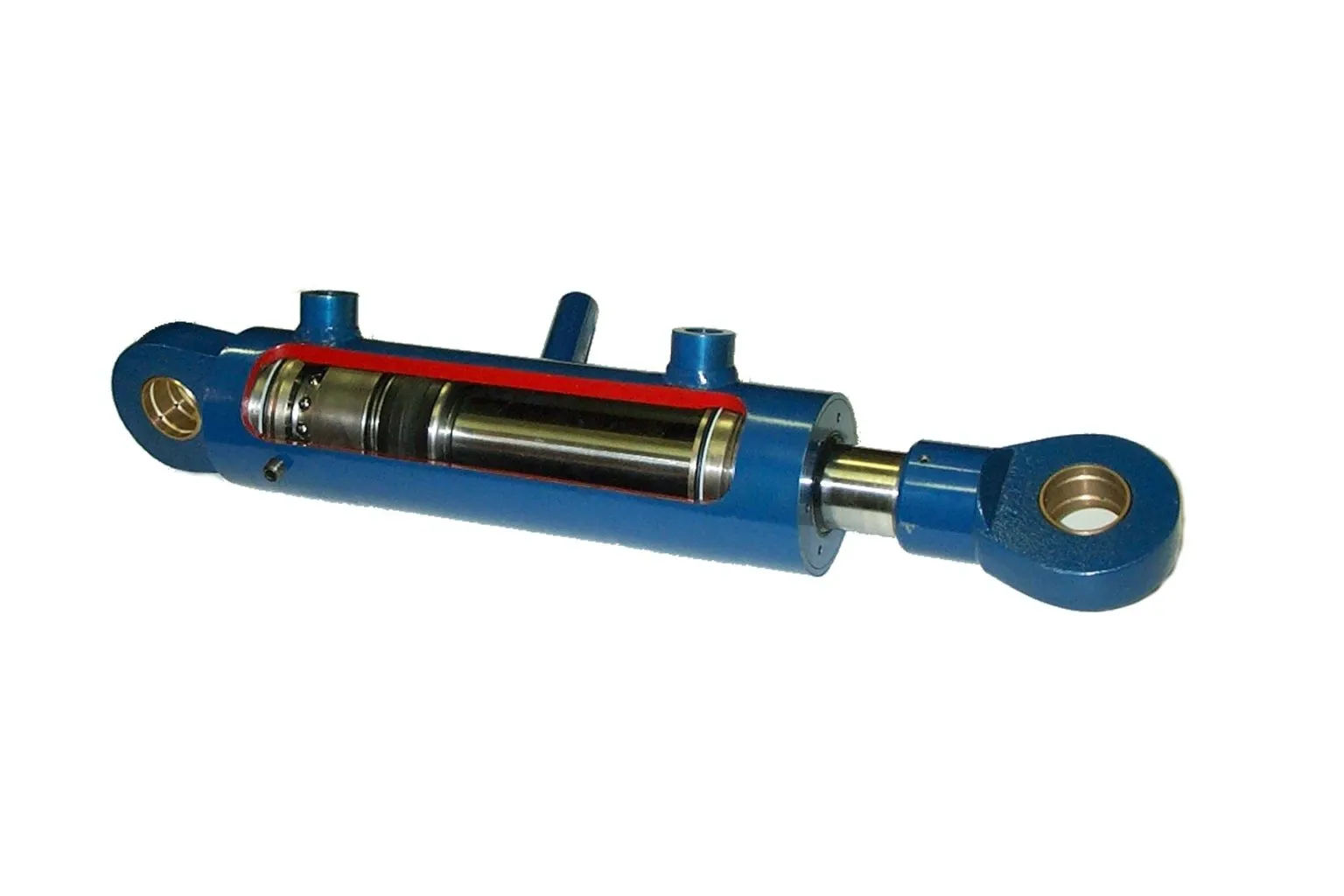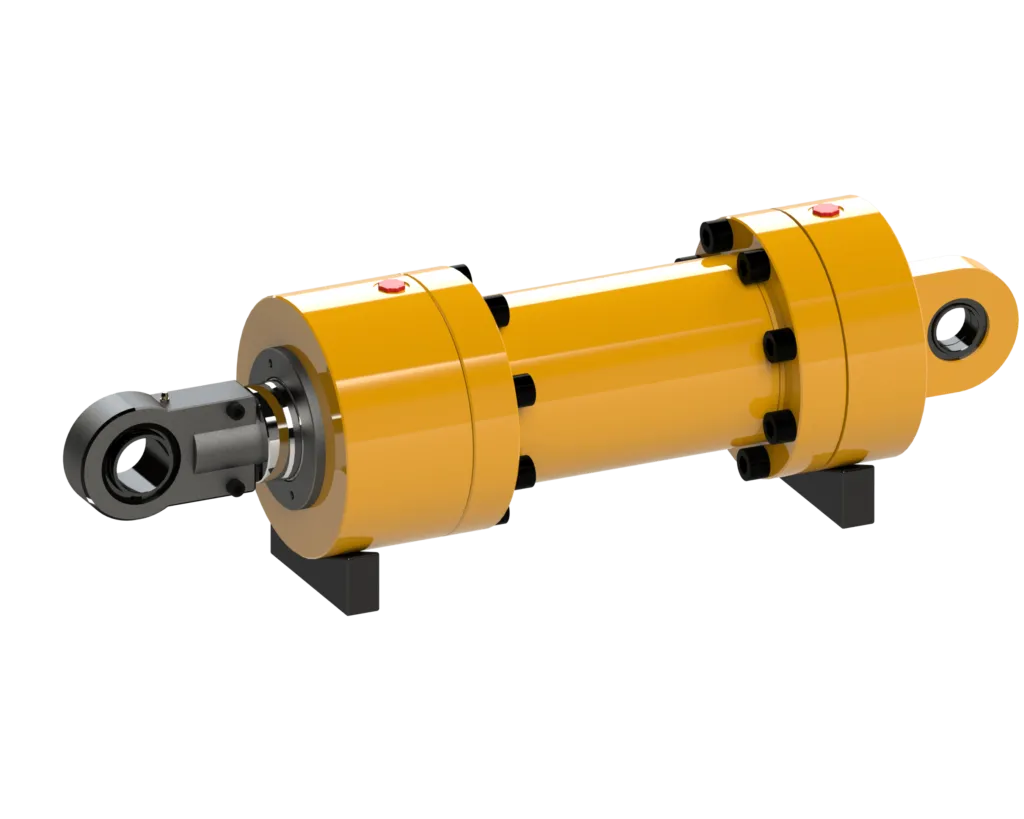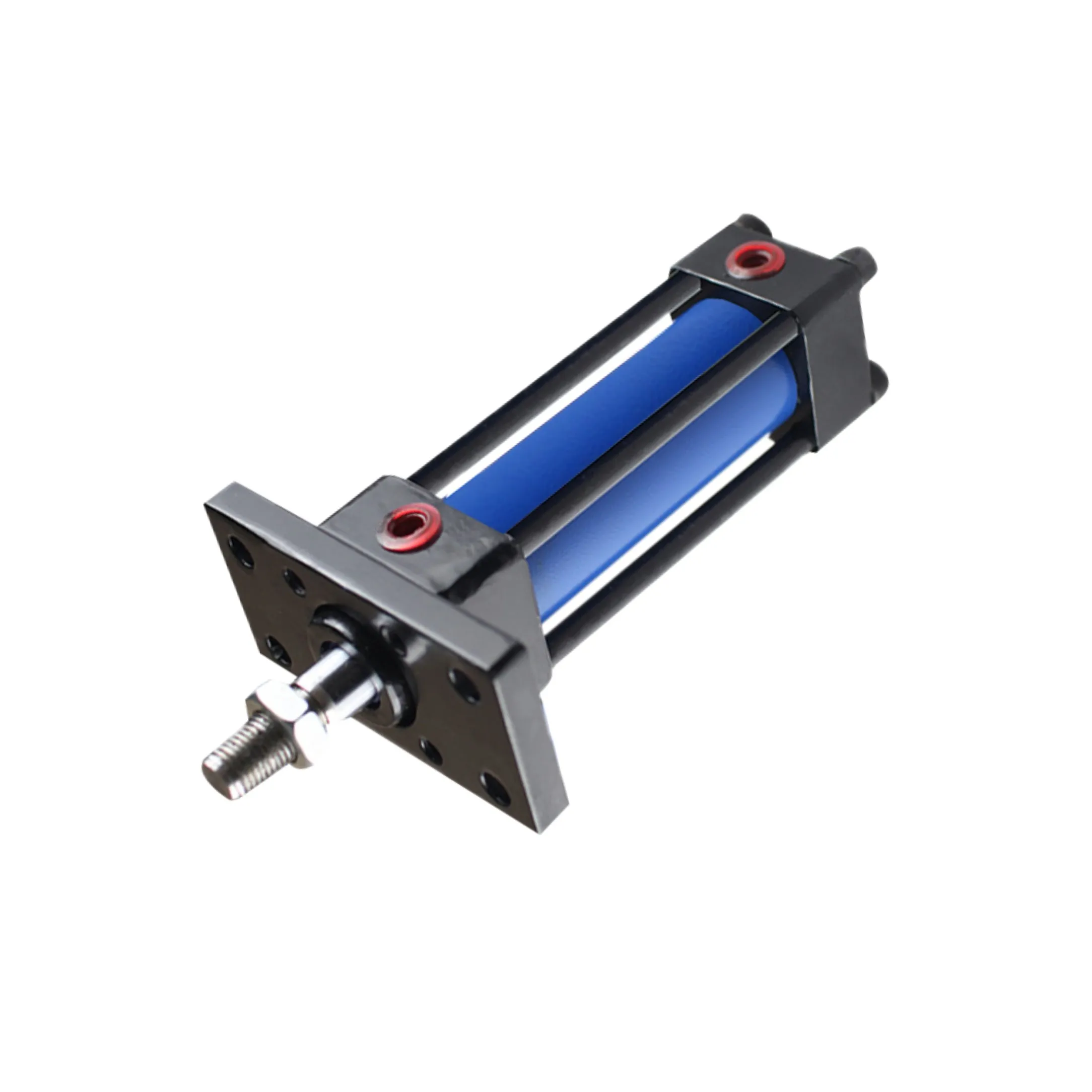Unlocking the Power of Locking Single-Acting Hydraulic Cylinder For Hydraulic Lifts
Introduction
Locking single-acting hydraulic cylinders are essential components in hydraulic lifts, ensuring safety and stability during operation. These cylinders operate under hydraulic pressure in one direction and have a locking function to prevent movement in the absence of pressure.
Design and Construction Characteristics
Locking Mechanism – Safety
The main feature of the locking single-acting hydraulic cylinder is its locking mechanism, which keeps the piston in a safe position when pressure is lost to prevent accidental retracting. This mechanism can be mechanical or hydraulic, providing added safety.
Variety
The design of the locking mechanism can be customized for specific applications, utilizing spring-loaded devices, pin locks, or other mechanical locks to meet varying needs.
Compact Structure – Space Optimization
Locking single-acting hydraulic cylinders are designed to be compact, making them ideal for use in limited spaces. They are versatile and suitable for a wide range of equipment and machinery.
Precision Manufacturing – High-Precision Machining
Components of these cylinders undergo high-precision machining to ensure optimal fit and sealing performance, reducing the risk of leakage.
Strict Quality Control
Stringent quality testing of materials and processes is conducted during production to guarantee the reliability of each component, ensuring long-lasting performance.
Assembly Process
Specialized assembly by professional technicians is crucial to ensure correct installation and calibration of individual components. Pressure tests post-assembly confirm performance and tightness.
Working Principle
The locking single-acting hydraulic cylinder works by utilizing a locking mechanism to keep the piston in place, preventing accidental retraction even in the absence of hydraulic pressure. This ensures safety and stability during operation.
Types and Configurations
There are three main types of locking single-acting hydraulic cylinders, each with unique configurations designed for specific applications. These cylinders provide tailored solutions for varying needs.
Benefits
Locking single-acting hydraulic cylinders offer several advantages, including enhanced security, reliability, and simplicity. These benefits make them a preferred choice for many applications, ensuring efficiency and safety.

Application Scenarios
Locking single-acting hydraulic cylinders find applications in construction equipment, manufacturing, transportation, and aviation industries, providing stability and safety where heavy objects need to be securely fixed.
Design Considerations and Selection Criteria
When selecting locking single-acting hydraulic cylinders, factors such as bearing capacity, sealing, durability, safety, and maintainability should be considered. These design considerations are essential for optimal performance.
Sealing and Lubrication

Proper sealing and lubrication of locking single-acting hydraulic cylinders are critical for longevity and performance. Using high-quality seals and regular oiling ensures smooth operation and prevents wear and tear.
Maintenance and Troubleshooting
Regular inspection and preventive maintenance measures are key to ensuring the optimal functioning of locking single-acting hydraulic cylinders. Troubleshooting tips and solutions help diagnose and address common issues effectively.
Installation and Maintenance Tasks
Correct installation and maintenance tasks, such as regular inspection, lubrication, seal replacement, and calibration inspection, are essential for maximizing the lifespan of locking single-acting hydraulic cylinders. Proper care and attention can prevent potential problems and ensure smooth operation.
Safety Considerations
Adhering to safety measures and considering environmental factors when using locking single-acting hydraulic cylinders are crucial for preventing accidents and ensuring operator safety.
Unit Power
The unit power of locking single-acting hydraulic cylinders is influenced by factors such as cylinder diameter, stroke, operating pressure, piston speed, and load conditions. Optimizing power output enhances efficiency, energy savings, and reliability.
Optimizing Power Unit
Optimizing the power unit of locking single-acting hydraulic cylinders improves efficiency, energy savings, and reliability, leading to enhanced performance and reduced operating costs.


FAQs
1. How does the locking mechanism in a single-acting hydraulic cylinder work?
The locking mechanism in a single-acting hydraulic cylinder prevents accidental retraction by holding the piston in place.
2. What advantages do locking single-acting hydraulic cylinders offer over standard cylinders?
Locking single-acting hydraulic cylinders provide enhanced security, reliability, and safety features compared to standard cylinders.
3. In what applications are locking single-acting hydraulic cylinders commonly used?
Locking single-acting hydraulic cylinders are commonly used in construction equipment, manufacturing, transportation, and aviation industries for stabilizing heavy loads.
Long-Tail Keywords
1. Hydraulic Cylinder Locking Mechanism
2. Single-Acting Cylinder Locking Features
3. Locking Single-Acting Cylinder Advantages
Our Company
We are a leading hydraulic cylinder manufacturer specializing in locking single-acting hydraulic cylinders for hydraulic lifts. With a complete product line, professional services, and international certifications, we ensure high-quality products and customer satisfaction.
Author: lyl
